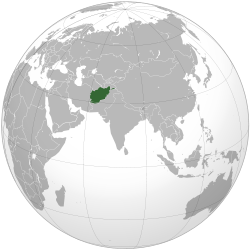Bonn II: From Transition To Transformation In Afghanistan – Analysis
By IPCS
By Mariam Safi
The International Afghanistan Conference in Bonn held on 5 December 2011 marked ten years of state-building and reconstruction efforts in Afghanistan. Ten years ago, on the very same day, the UN held the first Bonn Conference where the international community pledged to end the conflict, promote national reconciliation and bring lasting peace and stability to Afghanistan. In retrospect, Afghanistan has made relative progress since 2001, however there is little indication that the conflict is nearing end. This is a result of the Afghan government’s failure to consolidate the gains of the past decade, which has rendered its achievements unsustainable and thus vulnerable to the withdrawal of NATO in 2014. With this in mind, Afghan President Hamid Karzai stressed on regional cooperation, continued international aid and military training in his opening speech at the International Afghanistan Conference in Bonn (popularly known as Bonn II).

Bonn II now marks a shift from a decade of transition to a new decade of transformation (2014-2024) in Afghanistan. The conference chaired by Afghanistan, hosted by Germany, and attended by 85 countries and 15 international organizations, discussed the transition of security from NATO to Afghan Security Forces by 2014, affirmation of international support in the aftermath of NATO’s withdrawal in 2014; and the Afghan-led peace process. The Afghan government’s objective in Bonn was to convince the international community to continue its engagement post-2014 until it is ready to reduce its dependence on foreign aid. US Secretary of State Hillary Clinton while promising continued aid to Afghanistan, also highlighted the economic pressures the government was facing at home and urged the Afghan government to take serious actions in tackling corruption in order to maximize financial pledges which will be made in February 2012. Hence, the Afghan President vowed to implement institutional reforms, extend the rule of law, and ‘Afghanize’ the electoral process as a step towards eliminating corruption.
From the perspective of policy-makers in Afghanistan, Bonn II was deemed a success as it guaranteed international support for another decade. However, contentions around priorities and pledges did not go unnoticed during the conference. For instance, Karzai prioritized the dismantling of sanctuaries as a means to consolidate past achievements and establish security. The US, on the other hand, sidelined Afghan concerns of regional sanctuaries and stressed upon the principle of ‘mutual accountability’, describing it as the foundation for all the commitments made. Furthermore, Pakistan’s boycotting of the event also limited the conference’s scope as its role in the peace process is of strategic importance. Regardless of the achievements or setbacks, the question that remains is: what are the long-term prospects of the pledges made in Bonn? To answer this, one merely needs to examine the event that followed Bonn II.
In ensuring that promises made in Bonn materialize, the Afghan government must shoulder the burden of responsibilities and establish accountable and transparent institutions. To accomplish this, the government must ensure the effective implementation of the Civil Service Reform, hold officials accountable for involvement in corruption and extend the rule of law from cities to rural domains. But instead of building on promises made in Bonn, Karzai, on Anti-Corruption Day held on 11 December 2011, resorted once again to blaming the international community for corruption in Afghanistan. On the same day, the High Office of Oversight and Anti-Corruption described its organization as “a toothless lion, who with a lot of struggle can catch its prey, but has no power to bite” signaling to the government that stronger political will was needed to tackle corruption. Afghan efforts to fight corruption will exemplify its commitment to upholding the principle of ‘mutual accountability’. Nevertheless, in the context of Afghanistan, such principles continue to be lodged on unsubstantiated national, regional and international interests that render them difficult to sustain.
A violation of this principle was witnessed on 18 December 2011, when the US announced that the Taliban had agreed to a political office in Doha, sidelining the Afghan government from its own initiative. As a result, Karzai quickly summoned its ambassador from Doha and considered removing Qatar from the list of possible addresses for the Taliban. It is actions such as this that has threatened mutual accountability and obstructed cooperation between Afghanistan and its partners in the past. Sources close to the Afghan government explained that the administration was neither against a political office for the Taliban nor opposed the role of its international partners in facilitating talks. However, what disturbed the government was that the its international partners hijacked what was dignified as an Afghan-led effort. Afghanistan, and not the US, should have announced the creation of the Taliban office in Qatar, claimed sources.
The reality on the ground illustrates that Afghanistan will not be ready to welcome a decade of transformation if the Afghan government does not maintain a level of security and political stability from now till 2014. This will require the Afghan government, its international partners and regional neighbours to be transparent and accountable in their civilian and military efforts.
Mariam Safi
Deputy Director, Centre for Conflict and Peace Studies, Kabul, Afghanistan
email: [email protected]
